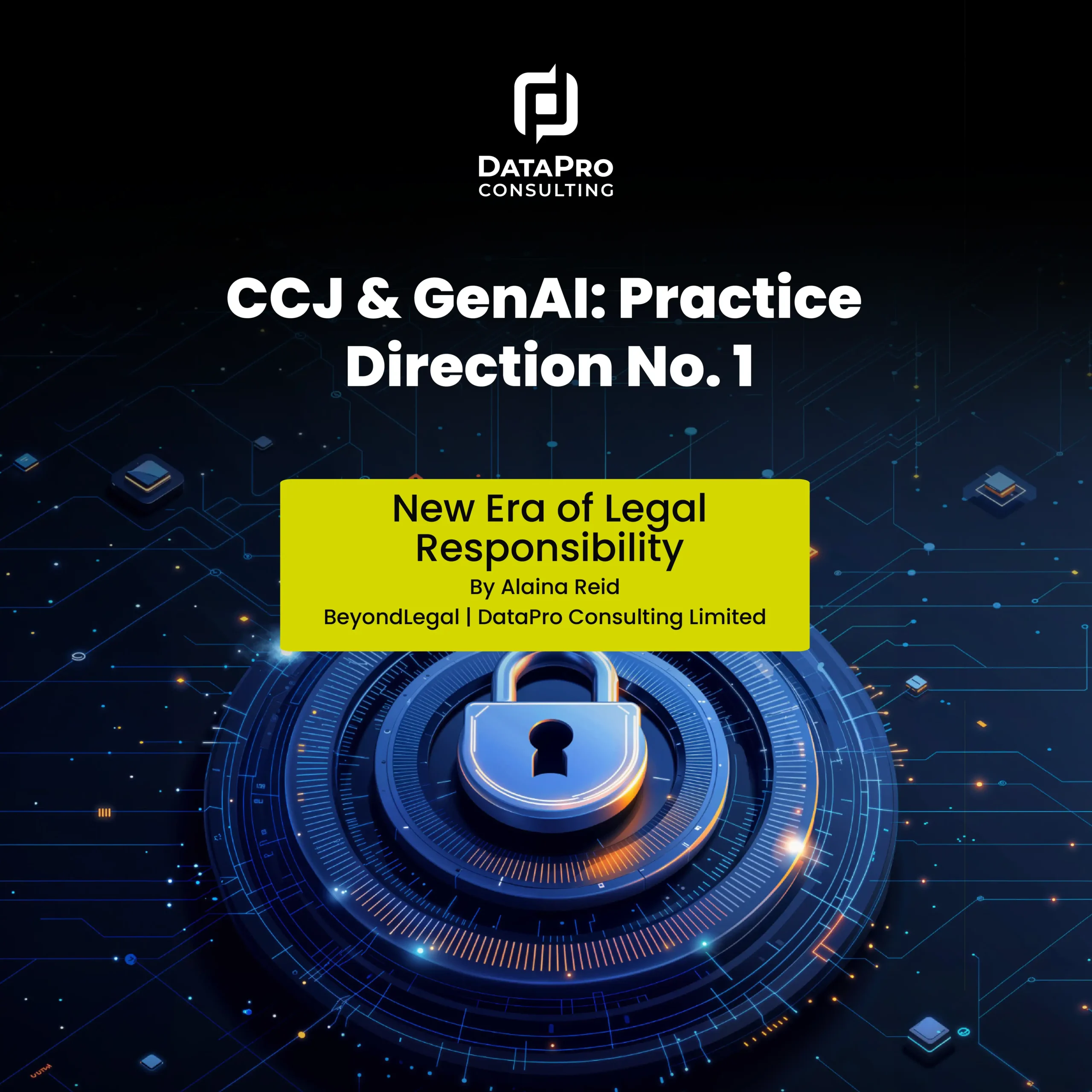By Alaina Reid – BeyondLegal & DataPro Consulting Limited
Generative Artificial Intelligence (GenAI) has revolutionized various industries, including the legal sector. However, its use in court proceedings comes with significant ethical and professional responsibilities. Recognizing the potential risks and benefits, the Caribbean Court of Justice (CCJ) has issued Practice Direction No. 1 of 2025, outlining strict guidelines for the use of GenAI in legal proceedings.
This Practice Direction serves as a crucial safeguard to ensure that the integrity of legal processes is not compromised by unverified or misleading AI-generated content. Attorneys and court users must take these requirements seriously, as non-compliance could result in costs orders or even an adverse finding by the court.
Why Fact-Checking Matters: The Risks of AI in Legal Proceedings
While AI tools can assist legal practitioners in drafting submissions, summarizing case law, and conducting preliminary research, they are not infallible. Generative AI tools do not guarantee accuracy and have been known to fabricate legal citations, misinterpret precedents, and generate misleading arguments.
The CCJ’s Practice Direction makes it clear that:
- Court users assume full responsibility for the accuracy, relevance, and appropriateness of AI-generated content.
- Attorneys must independently verify all submissions, reports, and evidence presented to the court.
- GenAI cannot be used to generate or alter affidavits, witness statements, or any evidence intended to reflect a person’s knowledge or testimony.
Failure to follow these principles could undermine the credibility of legal submissions and, more importantly, could mislead the court. Inaccurate filings could result in serious consequences, such as the rejection of documents or costs orders against the offending party.
Professional Obligations and Ethical Considerations
Attorneys are reminded that they owe a duty to the court and must adhere to professional standards of competence and diligence. The CCJ’s Practice Direction reinforces these ethical obligations, requiring lawyers to exercise professional judgment and not blindly rely on AI-generated content.
For self-represented litigants, while AI can be a valuable research tool, they too must ensure that their arguments and submissions are based on verified legal principles. Courts are unlikely to excuse errors that arise from uncritical reliance on AI-generated material.
Key Takeaways: Best Practices for Compliance
To avoid pitfalls associated with AI misuse, legal practitioners should:
- Use AI as an aid, not a substitute – AI can assist in legal research but must not replace critical legal reasoning.
- Cross-check AI-generated information against authoritative legal sources such as statutes, case law, and legal commentaries.
- Avoid inputting confidential client data into open-source AI tools, as this may lead to unintended disclosure of sensitive information.
- Be prepared to disclose AI use if required by the court and explain how the accuracy of AI-generated material was verified.
A New Era of Legal Responsibility
The CCJ’s Practice Direction No. 1 of 2025 reflects a progressive yet cautious approach to AI in the legal profession. While AI tools offer efficiency, they must be used responsibly. The duty remains on lawyers and court users to ensure that all materials submitted to the court are factually accurate, legally sound, and ethically prepared.
Failure to comply with these standards could result in serious consequences. As the legal profession navigates this new technological era, diligence and ethical responsibility must remain as guiding posts to all stakeholders in the legal fraternity.


